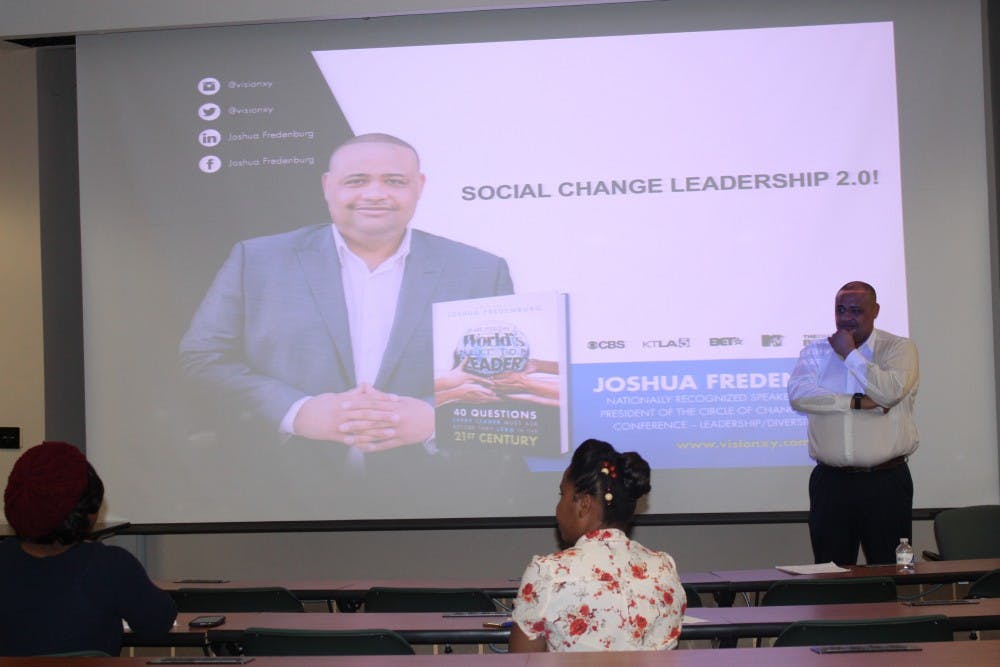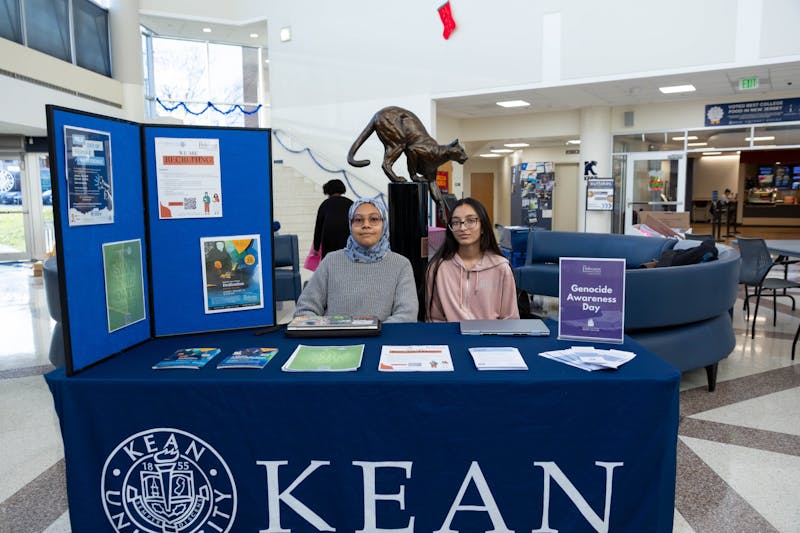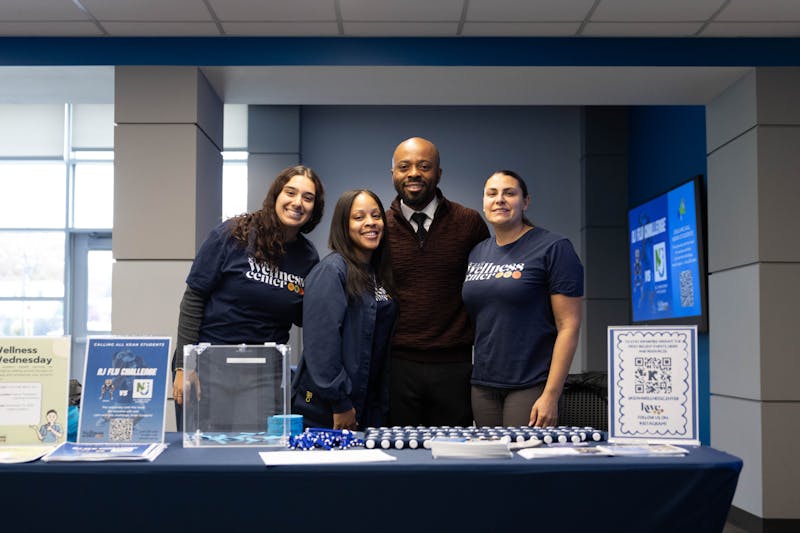On Thursday, April 12, Joshua Fredenburg came to Kean University to offer his expertise on the art of leadership.
Fredenburg is a renowned motivational speaker who has presented on a variety of topics but mainly specializes in leadership and diversity talks. His particular presentation held at Kean University was titled Social Change Leadership 2.0 - Be the change you wish to see in the world!
To begin, Fredenburg addressed the crowd and asked for five volunteers to offer their name and their expectation of the presentation. Some expectations given by students included to learn something new and learn something applicable to their future career. He then asked students to think about who they considered to have been the greatest leaders of the past three years. Some students answered Michelle Obama for her impact on the youth, Oprah Winfrey for her adaptability in regard to her market and Chance the Rapper for his programs in Chicago.
Fredenburg then went on to talk about a student-organized group called Concerned Student 1950. The group of students originated from the University of Missouri and came about to peacefully protest the racism that had persisted within the campus. Their activism has inspired students and colleges all across the country to do the same.
Fredenburg acknowledges that he had brought up the student group to highlight that leadership is not about the fame, popularity, likes on social media or position or title that a person may have. It is about the impact that the leader makes in people's lives by helping people in need and helping others, as well as oneself, to become successful.
Leadership is thus an attitude of mind.
To help the audience create the mindset of a leader, Fredenburg asks the audience these five questions over the course of the presentation:
- Have you identified your greatness?
- Do you have a vision to change the world?
- Can you lead with love and humility?
- Do you have an impact team?
- Are you resilient?
Fredenburg emphasized that leaders impact and lead not only themselves, but also everyone around them. It is necessary for a group of authentic leaders to come together to fix the major problems in the world. A title is not the sole attribute that makes a leader.
"Leaders are about impact. Leaders are about service. Leaders are about love. Leaders are about making a difference. Leaders are about solving problems," recited Fredenburg. "There's a lot of people that are in leadership positions that are not doing any of this stuff because they are there more so for the power, more so for accolades then for the people."
Fredenburg remarked that everyone is capable of becoming a great leader, but the first step is identifying one's greatness. Greatness is the unique trait that every individual holds that can serve to fix a problem in the world.
Fredenburg then shared a quote by Myles Monroe saying, "Your value in life is determined by the problems you solve through your gift." It is thus the responsibility of a leader to find and develop what could make them into an exceptionally great leader.
Upon identifying one's greatness, leaders should have a vision to change the world with their gift. Leaders need to have a vision to work toward so that their greatness and passion is not wasted. Leaders also need to have a high expectation and perception of themselves.
Fredenburg says, "You only become as great as what you can see. So, a lot of us settle for less in life because we have a low expectation or vision of ourselves. A lot of us settle for mediocrity because we have a low perception of ourselves. Some of us can't even believe we can be leaders because we don't see ourselves as being leaders. And so if I'm going to be a leader that's going to change the world — number one, I have to see myself being that leader, but then number two, I have to be clear about what the vision is that I am pursuing for the people that are following me."
This vision should be attained through love and humility. Leaders must make sure that their vision and passion for a project is because of their love and humility for the people. Fredenburg then gave the example of Gary and Marilyn Skinner who founded Watoto Ministries. Their project was meant to help the millions of African children who lost their parents as a result of HIV/AIDS. At the beginning of their passion project, however, they had been threatened with theft and murder by the very people they were trying to help. Despite their traumatic experience, the Skinners continued with their project because of their love for the people. They have since helped thousands because of their genuine love for the people and their persistence toward their vision.
Fredenburg then went on to explain the concept of having an impact team to help a leader with their vision. An impact team is a group of mentors that will help a leader develop their skills. Fredenburg highlighted that it is important to surround oneself with the people who genuinely want him or herself to succeed and will act as supporters toward one's goals.
"We are only as good as the people we surround ourselves with," stated Fredenburg. Fredenburg issued a challenge to the audience to invest in five people who will help them to succeed.
Lastly, Fredenburg then addressed the importance of resilience in being a leader. A part of leadership is facing hardships and challenges. It is especially important for leaders to become masters at overcoming obstacles due to the fact that their followers will look up to them and be influenced by what they do when faced with a hardship.
"The past is what built the capacity in you to become the impact and become the leader that you're going to be to other people. You see, there are certain stories that you're going to share that other people can't share because you've been through it. There is a certain message you're going to give that a person like me can't give because I've come to discover that you're life is more powerful than your words," stated Fredenburg, driving the point home that a challenge is not there to destroy leaders. Instead, challenges arise to make leaders more powerful.
With that, Fredenburg concluded his presentation making a powerful impact on everyone in the audience.
To get in touch with Fredenburg follow his Twitter @visionxy, Instagram @visionxy, Facebook at Joshua Fredenburg or email him at joshua@visionxy.com.







